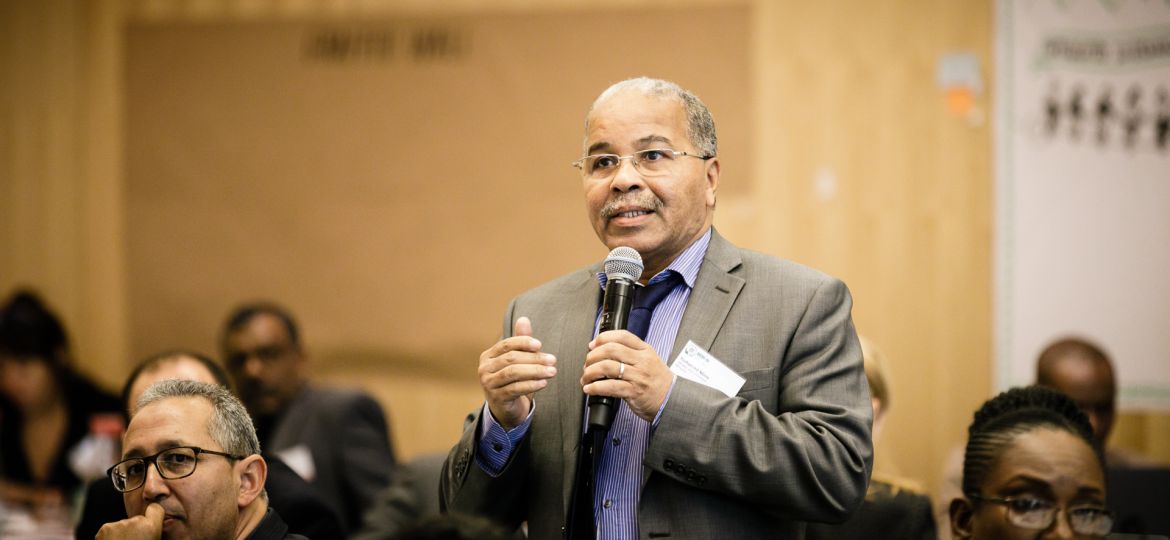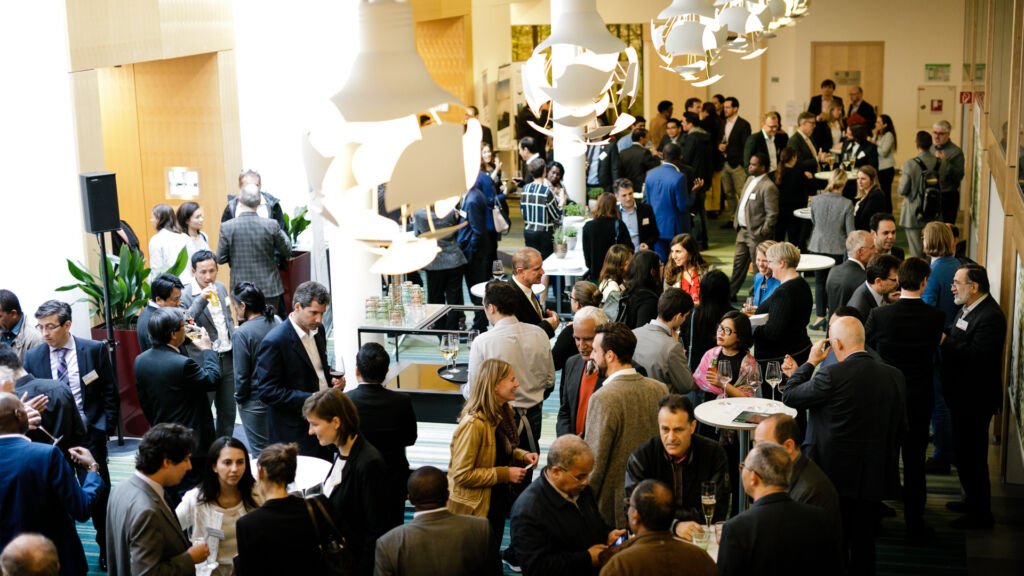
This blog post was originally posted at the International Climate Initiative’s (IKI) website on 4 August 2017.
At the sidelines of the Global NDC Conference in May 2017 in Berlin Mr. Mohamed Nbou, Director in the Ministry of Environment of Morocco, showcased in an interview latest developments related to NDC (Nationally Determined Contributions) implementation in his country. Among others, he explained progress in stakeholder involvement and setting up a carbon market.
After the decisions at COP21, what has been done in Morocco to operationalise the NDCs so far?
As stakeholder engagement and good governance are key to the implementation of the Paris Agreement, we created an innovative institution called ‘4C Maroc’. It’s a national competence centre for climate change mitigation and adaptation in Morocco and provides a platform with four colleges for different actor groups: 1. public sector (including agriculture, energy, mining, and water), 2. private sector (with the financial institutions), 3. NGOs, and 4. universities and research institutions. We believe that NGOs play a central role in raising public awareness of small-scale climate projects. The fourth college reflects the importance of innovation for the implementation of our NDCs. The 4C is a platform that supports the switch from a sectoral logic to an integrated logic.
How does Morocco handle this integration, how do these stakeholders come together?
Morocco’s NDC is very clear – there are two figures that we communicate: We aim to reduce CO2 emissions by 34 % compared to business as usual by 2030 on the one hand and mobilise USD 50 billion by 2030 on the other hand. In order to achieve this objective, we need comprehensive stakeholder mapping and an analysis of where we are at. The mapping and an analysis of the challenges that each sector is facing are the prerequisites for coordinating actions, which in turn is crucial for leveraging synergies between endeavours in different sectors.
We also have to clearly communicate the goals to all stakeholders. Creating a common understanding of the goals is essential for the implementation of our NDCs. We must bring all sectors on board. We also believe that the territories must be better involved in the process of implementing our NDCs. There is a huge gap between national and local stakeholders. Developing a differentiated plan to build capacities that takes into account the different backgrounds and visions of all stakeholders is one of our priorities.

I heard that a convention was signed just recently between the 4C and the Ministry of Finance. What is the purpose of this agreement?
Yes, a study had shown that a roadmap for the finance sector was needed for implementing the NDC. According to this roadmap, we had to begin by connecting 4C with the financial sector. That is why we signed the convention between the 4C and the Ministry of Finance. The Ministry plays a central role in the regulation, and we need regulation and incentives to ensure successful implementation. We also need far-sighted planning and a good understanding of the finance sector in order to take the NDCs from the engagement stage to the investment plan.
How do you intend to involve the financial sector?
The financial sector is already involved. Morocco is a leading actor in renewable energy and we are involving the private sector in all projects through public-private-partnerships (PPP). But there is still a lot to do to fully integrate the private sector into public sector activities. We still have to work on our regulation system. Carbon pricing is very important in this context. We should communicate to the private sector that we have something to offer: a price for the climate.
Do you already have a carbon pricing system set up and, if so, how does it work?
In cooperation with the World Bank, Morocco is involved in a major project called Partnership for Market Readiness (PMR). We are going to set up a carbon market in Morocco which corresponds to the capacity of our market and our NDCs. We have just commenced a study on four axes: The first axis deals with past climate action in Morocco. The second axis looks at the capacity-building potential of regulations. The third axis serves to create an MRV system with a data base, which is essential for carbon pricing. The fourth and final axis is the technical axis, dealing with the integration of carbon pricing into technical data.
We will also launch the creation of a Moroccan ‘G20’, with 20 Moroccan personalities that can influence the carbon pricing system – from CEOs of large companies to people working in finance and administration. We plan to organise dinners and summits with this committee twice a year. It will be a forum for calibrating and adjusting the operational framework of the carbon pricing scheme.
Also, we want to contribute to the COP23 in Bonn through the Carbon Pricing Leadership Coalition. This international coalition gives us the chance to present the results of our studies and to get the input of climate policies from around the world, thus helping to improve our concepts and our operational framework in Morocco.
The Global NDC Conference 2017 was a joint effort then hosted by the International Climate Initiative (IKI) at the then German Federal Ministry for the Environment, Nature Conservation, Building and Nuclear Safety (BMUB), organised by the Deutsche Gesellschaft für Internationale Zusammenarbeit (GIZ) GmbH, the then Low Emissions Development Strategies Global Partnership (LEDS GP), the United Nations Development Programme (UNDP), in cooperation with the NDC Partnership.
For more details check out the Conference report 2017.


